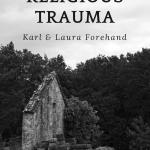We have turned humanity into an object of Christian faith, and social behaviors into essential Christian practices.
A couple of decades ago I sat visiting over lunch with my fellow students at the University of Malaya. The conversation turned to our professors. A young woman with her hair wrapped tightly beneath her headscarf and wearing a long, shapeless baju kurong, asked about the religion of my thesis supervisor. I told her that he was Muslim, but that he seemed to have some unusual ideas and did not pray five times a day.
She and her friend responded almost as a chorus: “Islam is a belief and a practice. If you do not believe what Islam teaches and do not practice what Shari’a demands you are not a Muslim.”
At the time I simply noted that this seemed rather rigid and judgmental. Later in my studies I would realize that they were the end point of an arc of reasoning that stretches from Ibn Taymiyya to Sayyid Qutb to contemporary jihadists including Osama bin Laden. It is an arc defined by the realization of the idea that “bad Muslim” or “non-practicing Muslim” or even “ignorant Muslim” is simply “non-Muslim.” Ultimately it is the arc of reasoning that allows the Muslim-on-Muslim terrorism that is ubiquitous in much of the Muslim world. A terrorist can kill, without compunction, people who understand themselves to be Muslim but whom he judges to be non-Muslim on the basis of their flawed beliefs or lackadaisical practice.
A belief and a practice.
For centuries these terms in Christianity referred to the beliefs about God specified in the creeds, and the sacramental practices of the church. You were a Christian if you believed certain things about God and you joined in the ritual practices of the church (at least annually!)
Of course Christians could and did shed blood over disagreements related to both of these. Heretics could be sought out and killed, and whole communities that deviated from Catholic (or later Protestant) practice could be slaughtered.
But this changed in Christendom as it emerged into the modern West. A new kind of society was forged in which the coercive power of government made itself unavailable to religious causes. And even the Catholic church eventually recognized that trying to sort Christians from non-Christians on the basis of belief and practice was conducive only to bloodshed and the splintering of ever more groups from the Church and one another.
So the separation of church and state has taken some of the fangs out of inter and intra-religious disagreements, and concepts of freedom of religion and conscience have even led to government protection of religious minorities.
But United Methodists have contrived, in the last century and particularly the last half century, to reinstate the full divisive power of the concept “belief and practice.” They have done it, however, without an insistence on the classic creeds of the church and attendance upon its established rituals.
No, United Methodists (and indeed American Protestants more generally if less formally) have decided to place a Social Creed and Social Principals at the heart of their identity. We have thus supplemented the classic beliefs and practices of a church seeking to know God and give God apt praise with beliefs and practices revolving around the nature of humanity and human behavior toward fellow humans.
The result has been a disaster, and is largely responsible for the decline of the United Methodism. What was intended to complete us as Christians concerned with love of God and neighbor, and to give our church clout in the realm of politics, has in fact turned us on ourselves. It has destroyed our political credibility and reduced us in many instances to nothing more than a humanitarian club meeting on Sunday morning instead of Wednesday at lunch.
A study of church history should have shown us that this was coming.
The brilliance of the separation of church and state in modern Western history lay in the way that it freed religions groups from the temptation of engaging political power to establish authentic faith. Intellectual and moral persuasion would form voluntary religious societies capable of both robust faith and doing practical good. Beliefs about God, formally stated, could be privately interpreted even as clear consistent teaching led people to greater understanding and unity. Ritual practices could be adapted to changing senses of aesthetics and differences in psychological and spiritual development while seeking to preserve the best of Christian tradition.
Arguably this would lead to the birth of the modern seminary – a place where churches sent clergy to be the kinds of leaders that didn’t merely enforce traditional demands for belief and practice, but actually trained to lead people into a deeper, more personal, assimilation of both into their lives. They would lead churches that transformed society through the transformative power of transformed individuals with a right to vote in a free society.
But then we turned a particular view of humanity into an object of Christian faith, and social behaviors into essential Christian practices.
For seminaries this leads to an instant doubling of the requirements for training clergy, since now they need to lead their congregations into not merely theological, but sociological, political, and anthropological reflection as well as political organizing and community action. As one member of our own Perkins faculty put it in a recent meeting, “social justice must run through the whole curriculum.”
That is a challenge. But the real problem is the in United Methodist Church and its Protestant (and indeed Catholic) peers. Social principles are inevitably political. They demand action in the public realm; to be enacted in law. Social principles are intrinsically worthless unless they entail a commitment by the church to engage in action to implement them.
This is why Methodists have a Board of Church and Society based in Washington D.C. Our Social Creed and Social Principals make us a political organization little different (except in complete ineffectiveness) from any other lobbying group.
With a Social Creed and Social Principles every disagreement about their meaning inevitably becomes a disagreement about legislation within the church regulating behavior of church members and leaders. And every disagreement about their meaning inevitably becomes a political disagreement in the larger society over how they should be implemented and enforced at a social level.
People may disagree, and do, on just what it means to affirm that God is “father almighty, maker of heaven and earth.” But they don’t need to, and indeed cannot, translate these disagreements into commanded or forbidden behavior. The same is not true of the statement “We affirm the sanctity of the marriage covenant that is expressed in love, mutual support, personal commitment, and shared fidelity between a man and a woman.” Taken seriously it both permits and prohibits certain acts in the church and in society at large.
The result has been obvious now for over 40 years as United Methodists have fought bitterly, and with increasing divisiveness, over what it means to enact our social principles both within the church and in the action of the church in the larger political realm. The Social Principles and Social Creed have placed an impossible burden on both seminaries and the clergy they prepare, to the detriment of both. But mostly they have insured that the inevitable disagreements that come (as John Wesley recognized) because of our human fallibility and finiteness are now heightened by the heady prospect of gaining political power within and outside the church. For one cannot dream of creating the Reign of God on earth without imagining ones’ self, if not as President, than at least as a member of his cabinet or a close advisor.
At the Last Supper the disciples argued over who would sit at the right hand of Christ when he came into his Kingdom. And so now we United Methodists also argue, aligning ourselves with this or that political action committee and the seductive allure of political power. And as we do we join the drumbeat of passion that leads not to the New Jerusalem, but only Golgotha. Of course the resurrected Jesus being unavailable, we will crucify him in the form of our fellow United Methodists.












